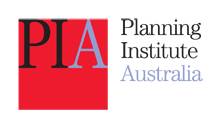Students learn how to manage urban growth by planning for sustainable development, infrastructure and services.
Courses include rural and regional sustainability, regional infrastructure planning, conflict resolution and urban design. Students examine issues relating to property and environmental management and infrastructure development with an emphasis on planning at a regional government level. They complete practical projects and a work placement, and complement studies with a minor in property, environmental studies, 3D design, Indigenous studies, sustainability, sociology, or justice studies.
- Only a full-time option is available to international students on a Student visa. Online programs are not available to Student visa holders.
- * Estimated tuition fees are based on 2025 rates. Refer to international fees for more information.
- Not all majors/minors and elective options are available at every campus. You should refer to the What Can I Study tab, and the proposed study sequence for your chosen campus and intake for further information.
Courses include rural and regional sustainability, regional infrastructure planning, conflict resolution and urban design. Students examine issues relating to property and environmental management and infrastructure development with an emphasis on planning at a regional government level. They complete practical projects and a work placement, and complement studies with a minor in property, environmental studies, 3D design, Indigenous studies, sustainability, sociology, or justice studies.
Career opportunities
Regional planning and policy, planning consultancy, community development, development assessment, land / infrastructure development.
Membership
Graduates may apply to join the Planning Institute of Australia after two years of professional practice.
Accreditation
The Bachelor of Regional and Urban Planning (Honours) is fully accredited by the Planning Institute of Australia.
Program structure
Program requirements
In order to graduate you must:
- Complete 7 required introductory level (100 coded) courses.
- Complete 17 required advanced level (200/300/400 coded) courses.
- Complete 4 courses towards a minor plus 2 elective courses, or complete 3 courses to complete a Geography major plus 3 elective courses.
- Complete no more than 10 introductory level (100 coded) courses, including the core course.
- Complete no more than 6 courses from the School of Communication, School of Business or Faculty of Science, Health, Education and Engineering.
- (Optional) Use electives to complete a minor to supplement the required major.
- Register any selected Majors or Minors with your Faculty.
Program notes
- Completing this program within the specified (full-time) duration is based on studying 48 unit points per semester (normally 4 courses).
- Courses within this program are assessed using a variety of assessment methods including essays, seminar presentations, studios reports, in-class tests and examinations. Not all courses will necessarily include all methods.
- As part of your USC program, you may apply to participate in the Global Opportunities (GO) Program to undertake courses with an overseas higher education provider. It is advisable to contact your Program Advisor to discuss timing and course issues.
- Only a full-time study option is available to international students on a Student Visa.
- When enrolling, refer to the Study Plan.
Program structure
Introductory courses (7)
COR109 Leading Groups in Outdoor Environments
ENP101 Outdoor Environmental Expeditions
ENP103 Leading Coastal Environmental Studies
GEO100 Introduction to Behavioural Health
INT140 Introduction to Sport and Exercise Science
PED120 Sport and Exercise Psychology
SCS130 Physical Education Studies A
Advanced courses (17)
ENP211 Physical Education Studies B
ENP236 Introduction to Aboriginal and Torres Strait Islander Education
ENP245 Research Design: Method and Literature Review
ENP255 Communication and Thought
ENP311 Planning Principles and Practice
ENP336 Spatial Governance and Planning
ENP355 Physical Geography and Mapping
ENP365 An Introduction to Australian Politics: The Makings of a Republic?
ENP411 Property Economics
ENP455 Introduction to Indigenous Australia(24 units)
ENP460 Planning and Environmental Law(24 units)
ENP470A Regions, Change and Sustainability
ENP470B Landscapes, Place and People
ENS253 Urbanism and Urban Design
ENS300 Planning Theory
HIS265 Regional Infrastructure Planning
SCS225 Planning Design Studio
Major/Minor courses plus Electives (6)
Option 1
Select 4 courses towards you minor study area:
- 3D Design
- Environmental Studies
- Indigenous Studies
- Justice Studies
- Property
- Sociology
- Sustainability
PLUS select 2 elective courses from either faculty (Arts and Business or Science, Health, Education and Engineering).
Option 2
Select 3 courses towards a Geography major study area:
2 required courses:
GEO101 Participation and Conflict Resolution
GEO201 Professional Planning Practice
PLUS select 1 course from the following:
GEO301 Community Planning Studio
GEO302 Planning Practicum
GEO310 Planning Project
GEO340 Planning Project
GEO350 An Introduction to Geographic Information Science and Technology
PLUS select 3 elective coursesfrom either faculty (Arts and Business or Science, Health, Education and Engineering).
TOTAL UNITS 384
Honours
The Bachelor of Regional and Urban Planning (Honours) may be awarded with Honours. The class of honours to be awarded is dependent upon:
- The percentage results achieved by study in ten courses (144 Units) as specified below; and
- The student receiving at least 60% in ENP470A Environmental and Resource Economics and ENP470B Cultural Heritage.
